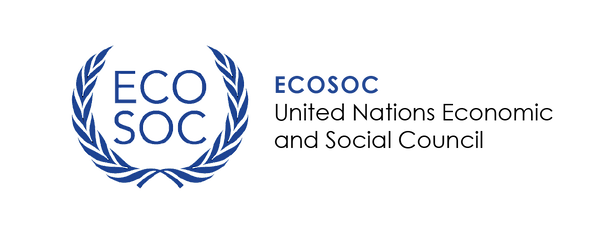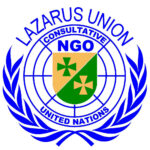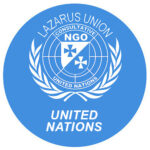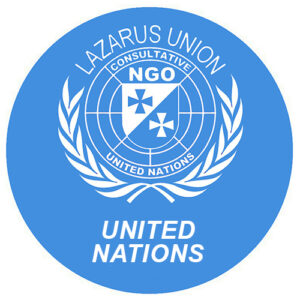ECOSOC
The Lazarus Union and ECOSOC
The Lazarus Union is one of the only 141 NGOs granted the “General Consultative Status” in 2019 (the highest level, which may be granted to organizations that are concerned with most of the activities of the council, who are making substantive and sustained contributions in many fields, with a considerable membership, and that are broadly representative of major segments of society in a large number of countries. These organizations are entitled to deliver oral presentations during the council’s meetings.), after being granted the “Special Consultative Status” 2014. (Reg.no. (=Profile Code) 632158)
The Economic and Social Council is at the heart of the United Nations system to advance the three dimensions of sustainable development – economic, social and environmental. It is the central platform for fostering debate and innovative thinking, forging consensus on ways forward, and coordinating efforts to achieve internationally agreed goals. It is also responsible for the follow-up to major UN conferences and summits.

Basic Facts about ECOSOC Status
- As of April 2022, 6,110 NGOs enjoy active consultative status with ECOSOC.
- There are three types of consultative status: General, Special and Roster. Most new accreditations are in the Special category.
- Consultative status provides NGOs with access to not only ECOSOC, but also to its many subsidiary bodies, to the various human rights mechanisms of the United Nations, ad-hoc processes on small arms, as well as special events organized by the President of the General Assembly. See News and Events for samples.
- ECOSOC accreditation is separate and distinct from NGOs who are associated with the UN Department of Global Communications (DGC).
- General and special status NGOs are required to submit a ‘quadrennial report’ every four years.
- The Committee on NGOs reviews new applications for consultative status twice a year, in January (‘regular session’) and in May (‘resumed session’).
- The Committee does not decide but recommends. These recommendations, contained in one report for the January session and one report for the May session, are reviewed by ECOSOC in June and July respectively.
- In most cases, ECOSOC decides to approve the recommendations. In very rare cases, it does not.




